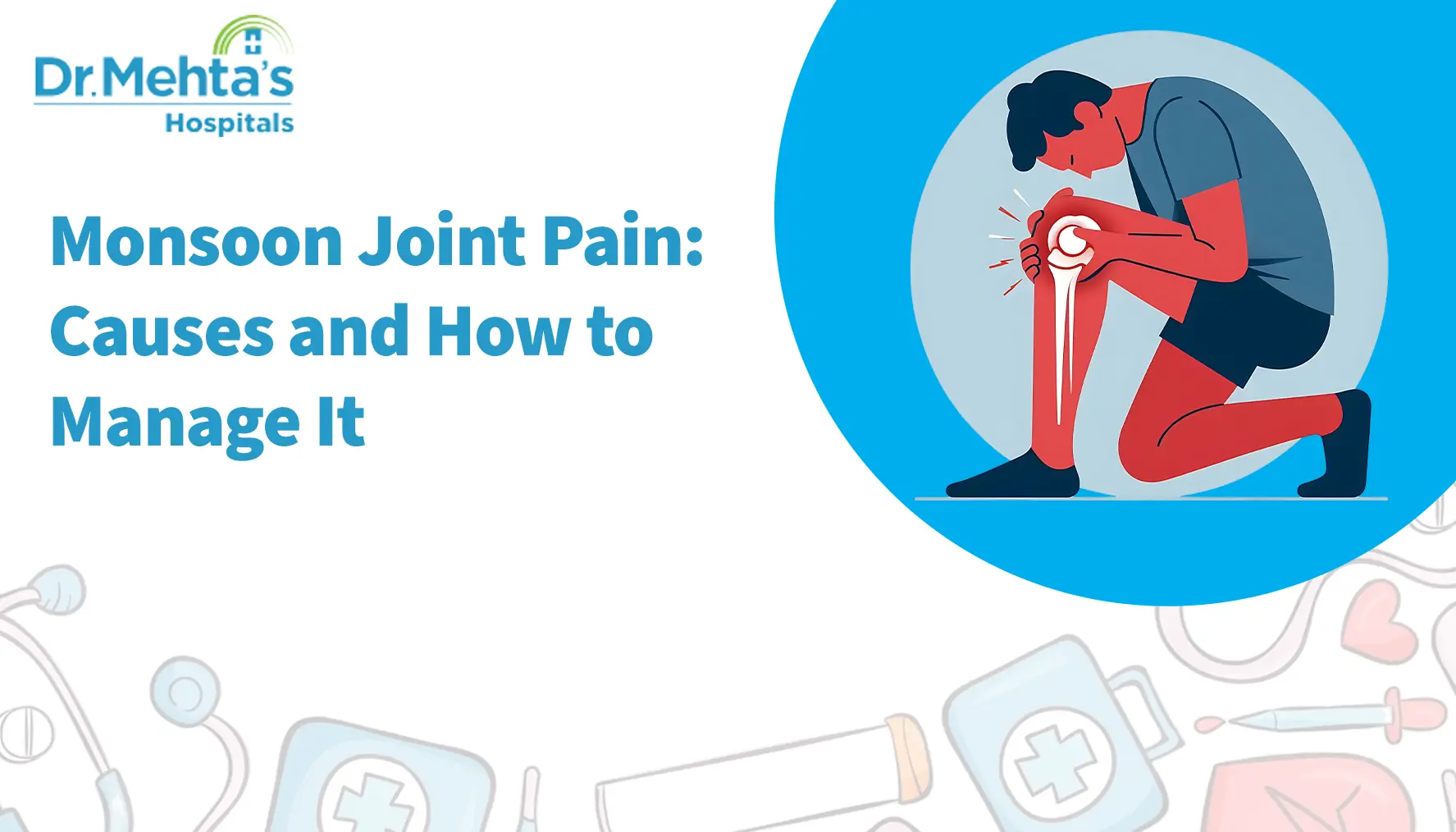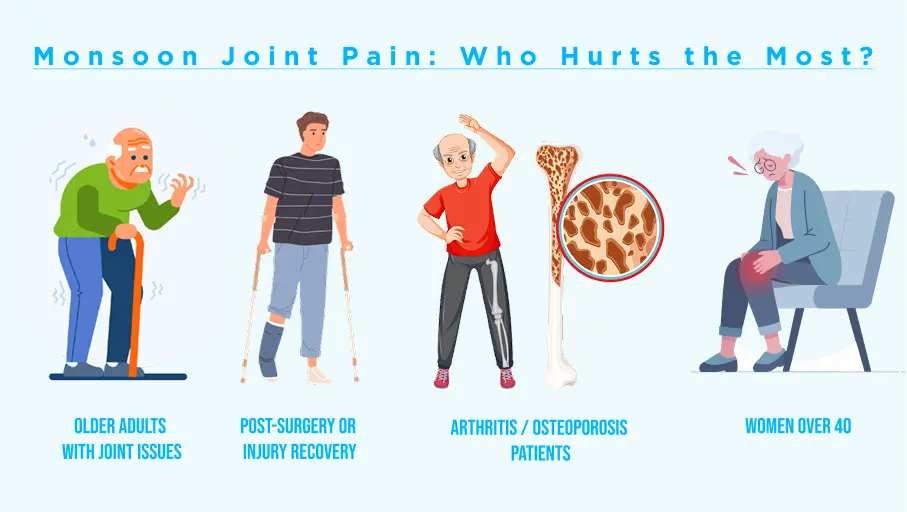Table of Contents

Like any rainy season that brings cool breeze and fresh greenery, the monsoon also brings an un-welcome guest for many- recurring joint pain. In many people, especially the elderly or those with past injuries, wet weather can worsen pain, making movement difficult. The good news is that this pain can often be managed with proper care and treatment.
A typical seasonal problem is joint pain during the monsoon.Although it may not indicate a serious medical condition, it can limit comfort and daily activities. This is a condition commonly occurring in the knees, hips, and other lower extremity joints, and is more prevalent when it involves humid weather or wet weather.
Sudden changes in temperature and air pressure can affect joint fluid movement, leading to stiffness, pain, or swelling.
Changes in barometric pressure during the monsoon can affect the synovial fluid in joints, causing discomfort, particularly in people with arthritis or previous injuries. Reduced physical activity on rainy days can also make joint stiffness worse. As highlighted by an orthopedic surgeon in a Hindustan Times article, simple habits like staying inactive or not using joint-friendly furniture can unintentionally increase joint pain during this season.
Search trends show that terms like “joint pain in monsoon” and “knee pain during monsoons” are common, as many people notice a difference in their joint health during this season.
Let us take a look at some of the symptoms of joint pain and the most prevalent reasons behind joint pains in the monsoon:
Actually, weather changes can tend to aggravate causes of joint pain, such as arthritis, a sedentary lifestyle, and inflammation.
Every person can experience joint pain, yet some groups are more susceptible:

The joint pain does not have to be so overwhelming during the monsoon. Here are some expert-recommended ways to make you feel better:
If you’re still experiencing joint pain during the monsoon, get in touch with a trusted orthopedic specialist in Velappanchavadi for proper evaluation and care.
Orthopedists in Dr. Mehta’s Hospitals recommend:
With repetitive symptoms, do not take joint pain supplements over the counter or treatment medicine without a prescription. If you’re dealing with joint pain this monsoon, consider visiting a reliable bone and joint hospital in Chennai to get the right care and feel better faster.
When your lower body joint pain lasts more than a week or prevents you from walking or sleeping, see a specialist. Keep in mind that it may not just be seasonal discomfort. Our specialists at Dr. Mehta’s Hospitals are here to help with compassionate, expert care. While many cases can be managed without surgery, the right treatment, whether surgical or non-surgical, depends on your specific condition and needs.
It may be that the rains are comforting to the soul, but they need not disturb your joints. Small lifestyle changes and professional guidance can go a long way in managing monsoon joint pain.. If you notice these signs, do not disregard them; listen to your body, act slowly, and consult the doctor. At Dr. Mehta’s Hospitals, we can and always will be there when you are on your road to better health, rain or shine.
1. What causes joint pain in the monsoon?
Changes in air pressure, reduced activity, and low sunlight can make joints stiff and sore.
2. Are there specific foods that reduce joint pain and inflammation?
Yes, turmeric, ginger, spinach, almonds, and omega-3-rich seeds like flaxseeds are helpful.
3. Is knee pain during monsoons common?
Yes, knees are often the most affected joint due to weather sensitivity and stress.
4. How can I reduce joint pain naturally?
Exercise gently, use warm compresses, and follow an anti-inflammatory diet.
5. Are joint pain supplements safe?
Not all. Always consult a doctor before using supplements or joint pain treatment medicine.
Table of Contents
Recent Post
About us
Dr. Mehta’s Hospitals is a leading multispecialty hospital in Chennai with over 90 years of excellence. With 400+ beds and 80+ specialties, its Chetpet and Velappanchavadi centers offer advanced, state-of-the-art, compassionate care under one roof.
Chetpet Contact Details
Velappanchavadi Contact Details
Feel free to ask your queries on
Our Specialities
About us
Dr. Mehta’s Hospitals is a leading multispecialty hospital in Chennai with over 90 years of excellence. With 400+ beds and 80+ specialties, its Chetpet and Velappanchavadi centers offer advanced, state-of-the-art, compassionate care under one roof.
Chetpet Contact Details
Velappanchavadi Contact Details
Feel free to ask your queries on
Our Specialities
Quick Links
Center Of Excellence